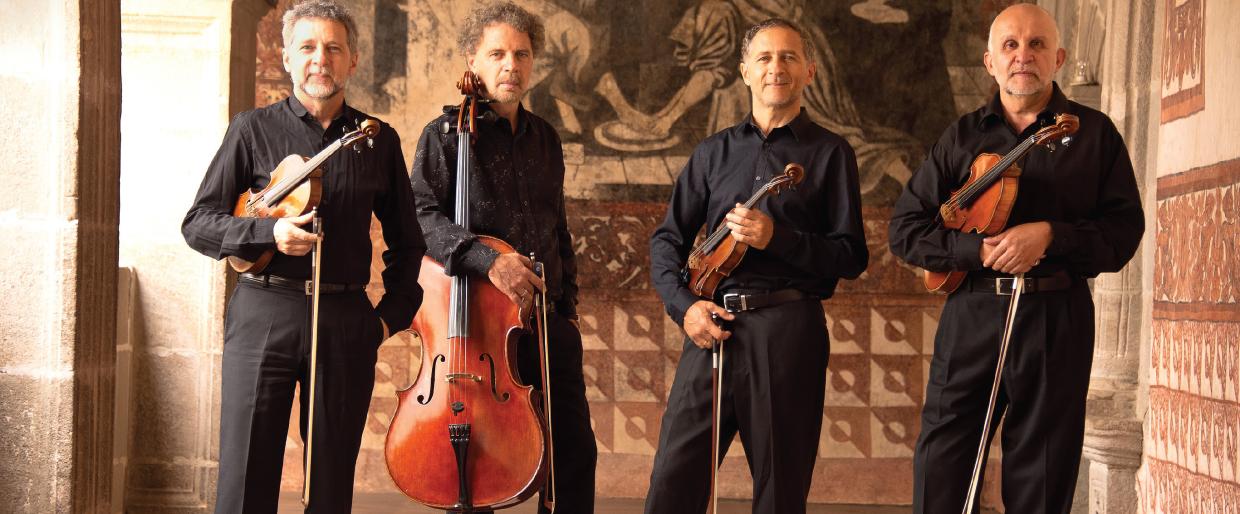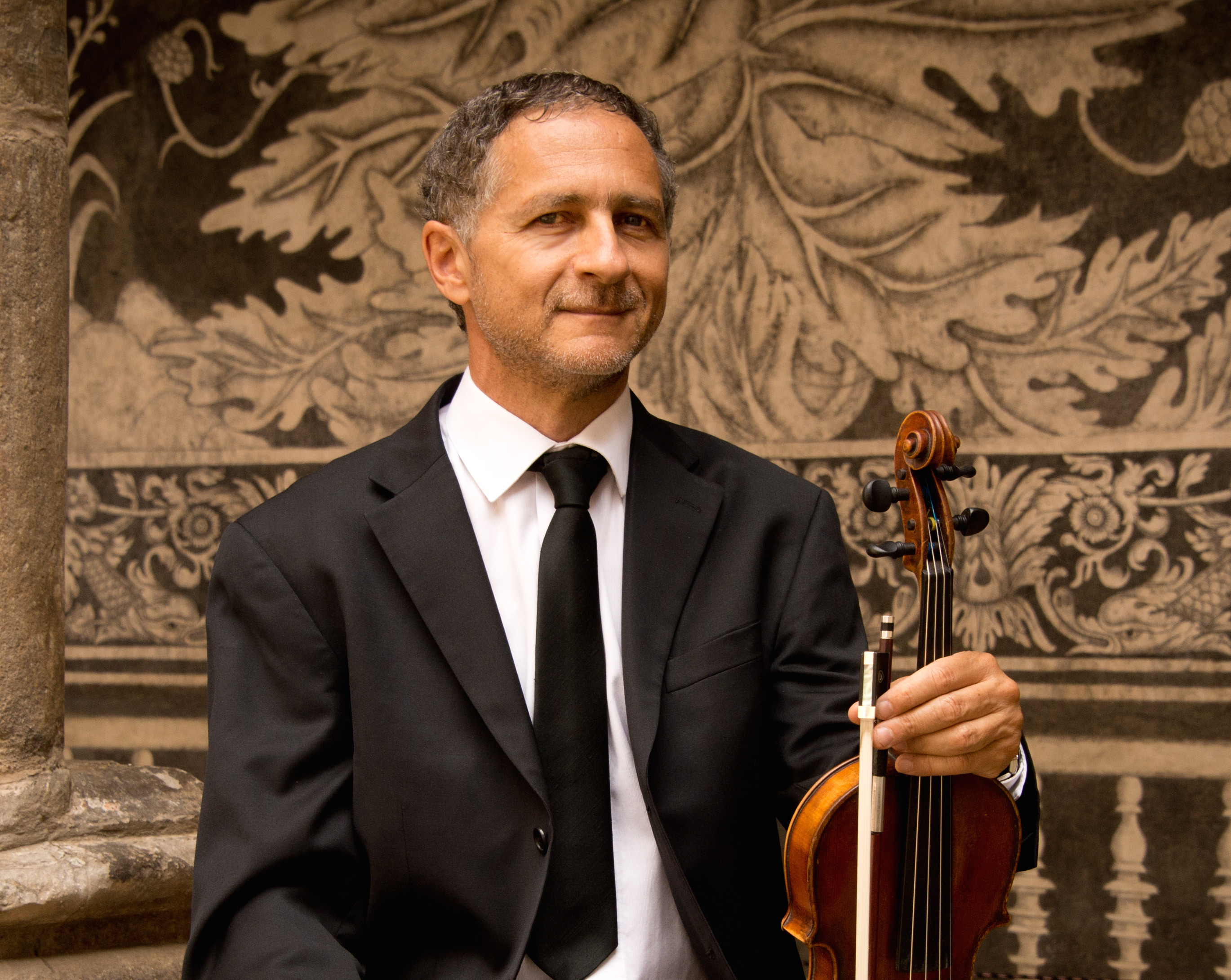An Interview with Latin Grammy Winning Cuarteto Latinoamericano

September 2nd, 2022
Cuarteto Latinoamericano opens the 2022-2023 season
Saturday, October 15 at 7:30 pm
Nichols Concert Hall | 1490 Chicago Avenue, Evanston
Purchase in-person tickets >>
Purchase livestream tickets >>

CUARTETO LATINOAMERICANO
A Q&A with first violinist/primer violinista Saul Bitrán
Cuarteto Latinoamericano, is one of the world's most renowned classical music ensembles, for more than thirty years the leading proponent of Latin American music for string quartet. Founded in Mexico in 1982, the Cuarteto has toured extensively throughout Europe, North and South America, Israel, China, Japan and New Zealand. They have premiered more than a hundred works written for them and they continue to introduce new and neglected composers to the genre. Winners of the 2012 and 2016 Latin Grammys for Best Classical Recordings, they have been recognized with the Mexican Music Critics Association Award and three times received Chamber Music America/ASCAP's "Most Adventurous Programming" Award.
When was the last time you performed in Chicago? What has been your connection to the city during your history?
It’s hard to believe, but have only played one concert in Chicago in these 40 years! It was at the Art Institute, on August 28, 2002. The day before we had played at Ravinia Festival. Many years before that, in 1985, we did a studio recording for WFMT. It does surprise us that we have had such a minimal presence in this major American cultural hub, especially considering the vast Mexican population it contains. Therefore, we are extremely happy to return to Chicago, after 20 years!
You are celebrating 40 years as an ensemble and that is quite an achievement. How have you been able to sustain your success for so long?
I wish I had a clear answer to that question. It has been a combination of factors, I suppose - dedication, constant individual practice, tolerance, punctuality, sense of humor, friendship and, why not, luck!
What can you share about the works on your Nichols Concert Hall program to add something more for audiences? Particularly the Villa-Lobos piece, since he is the focus of the Music Institute’s One Composer, One Community program this year?
The program we are presenting at Nichols Concert Hall is a wonderful compendium of some of the best music written for string quartet in Latin America. All the pieces, except Francisco Mignone’s, are in some way or another, derived or related to folklore. Mignone’s early works, as is this Andantino, are heavily influenced by Italian opera, to which his Italian-born parents listened constantly at home in Rio de Janeiro. Later on, Mignone would turn to Brazilian folklore as well, as is clearly heard in his two String Quartets, from the 1950’s.
Heitor Villa-Lobos’s Quartet No. 17, is a clear example of how the composer’s language, towards the end of his life, had decanted into a clean, almost Neo-Classical style. After a lifetime of employing coloristic effects and lush orchestration in order to express his Brazilian soul, in this, his last quartet, the Brazilian mood has been distilled into a simple, long and sorrowful melody on the slow movement and to a nostalgic middle section on the last movement.
You have demonstrated a commitment to shining a spotlight on new and neglected works. How is the process of learning and preparing these works different (or not) from working on better-known chamber music works?
For us, the process of learning a piece written a month ago is not that different than learning a quartet by Mozart or Mendelssohn. The task at hand is basically the same; conquering the technical challenges through slow practice (individually and then together) and then understanding and refining the musical message so it is clearly expressed and projected to the audience. All good music written for quartet comes from the same tradition and, no matter the style or date of composition, deserves the same respect and serious work on our part.
With our “Families in Concert” program coming up right after your concert, what can you share about what it has meant to your family to perform together?
Actually it is not that unusual to have family members on a string quartet; there are various well-known current and past quartets where there are two, three or even four siblings playing together, as well as married couples sometimes. In our case, I think the fact that we are three brothers (and a very good friend) has played to our advantage; we have known each other for so long, that we know and anticipate each other’s thoughts and movements, making our rehearsals very efficient. Plus, in our case, we get along very well.
